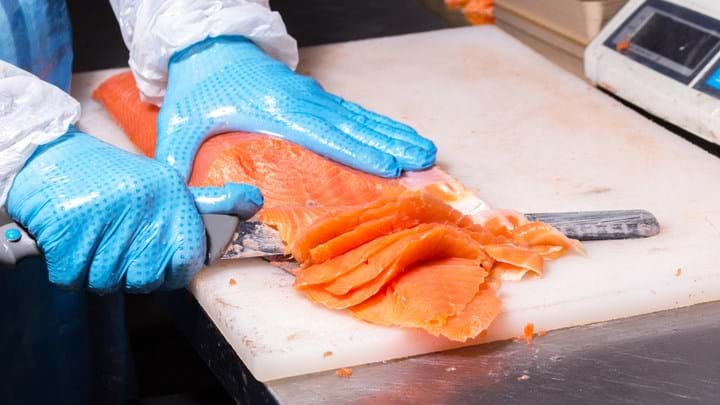Research could see fish waste used for nylon production

SCOTTISH researchers are exploring a new bio-based process for more environmentally-friendly and circular production of adipic acid – a key component used to produce nylon – using fish waste.
Typically derived from petrochemicals, adipic acid is used in a range of other products including polyurethane-based items, such as building insultation and furniture cushioning; lubricants; and pharmaceuticals. The current production process has significant environmental impact, including by generating the greenhouse gas nitrous oxide as one of its many byproducts.
The bio-based process would extract the components of fish processing waste using biological enzymes. Genetically modified bacteria would then be used to convert the fatty components into a mix of adipic acid and useful byproducts.
Research collaborator Farne Salmon, a salmon products producer, is supplying the waste for the feasibility study.
Other collaborators include plastic experts from Impact Solutions; biotechnology researchers from the University of Edinburgh, UK; food production company Labeyrie Fine Food; and the Industrial Biotechnology Innovation Centre.
Simon Rathbone, Development Manager at Impact Solutions, says that to maximise value, the researchers are looking at other components that could be extracted from the “sludge”, such as fatty acids and fish oils.
According to Seafish, a UK public body supporting seafood industry, catching and processing fish generates about 492,000 t/y of waste. The waste currently goes through expensive and energy-intensive treatments or is used to produce low-value products such as animal feed or fertiliser.
Recent Editions
Catch up on the latest news, views and jobs from The Chemical Engineer. Below are the four latest issues. View a wider selection of the archive from within the Magazine section of this site.




